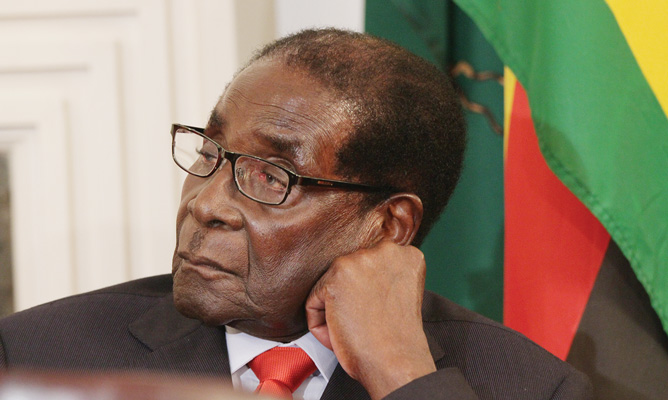
Zimbabwe has been battling to win back the trust of the international community since 2009 when an inclusive government put brakes to President Robert Mugabe’s decades of ruinous policies.
THE STANDARD EDITORIAL
The change of tact, after years of international isolation, led to some temporary relief for Zimbabwe’s economy ruined by the violent land reform programme and Mugabe’s unilateral intervention in the Democratic Republic of Congo war.
An ill-advised decision to award war veterans’ unbudgeted pensions, mismanagement, corruption and the failure to repay loans had made Zimbabwe a leper in the eyes of the international community.
However, the hybrid government Mugabe was forced to form after suffering an embarrassing electoral setback in 2008 appeared to have brought Zimbabwe back on its feet.
Suddenly there was renewed interest in Zimbabwe by investors and the European Union became keen on re-engagement talks.
The interest in Zimbabwe was not re-ignited by any major policy overhaul but the commitment to reform, which was shown by the inclusive government.
A successful constitution-making process was one such milestone that could have fooled the international community into believing that the leopard had changed its spots.
- Chamisa under fire over US$120K donation
- Mavhunga puts DeMbare into Chibuku quarterfinals
- Pension funds bet on Cabora Bassa oilfields
- Councils defy govt fire tender directive
Keep Reading
Multilateral funders such as the International Monetary Fund (IMF) and the World Bank that had been shown the middle finger by Mugabe in the past, were now willing to re-engage.
The last IMF delegation was in Harare early this month and there were positive signs that good things were about to come out of all those trips.
Reserve Bank of Zimbabwe governor John Mangudya was so optimistic, he even suggested Zimbabwe could get its first loan in over a decade from the IMF before the end of the year.
But optimists such as Mangudya have to hold their breath; in Zimbabwe, the more things change, the more they remain the same.
The decision by Cabinet last week to shut down foreign- owned companies that have not complied with the government’s empowerment laws took Zimbabwe back to the dark ages.
According to Indigenisation minister Patrick Zhuwao, the companies that violate the controversial law would be forced to close down by April 1.
The foreign-owned firms — including banks and mines — had been given a March 31 deadline to sell at least 51% of their shares to locals.
Mugabe has been pushing for the full implementation of the toxic law ever since it became clear that there was no longer any political capital to milk out of the disastrous land reform programme.
His government stubbornly ignored critics who rightly pointed out that such a law is not ideal for an economy that has been in recession for over a decade.
Zimbabwe has just ruined the goodwill from the international community through that reckless Cabinet resolution and economic recovery will remain a mirage until there is a change in the leadership steering the country.
Mugabe once again put his self-interests ahead of the country.
The Zanu PF administration has demonstrated beyond any doubt that it does not have the capacity to reverse the economic catastrophe it created.
Zimbabwe has an unemployment rate of 80%, largely because of Mugabe’s failed leadership and with his latest suicidal policy, it can only get worse.











